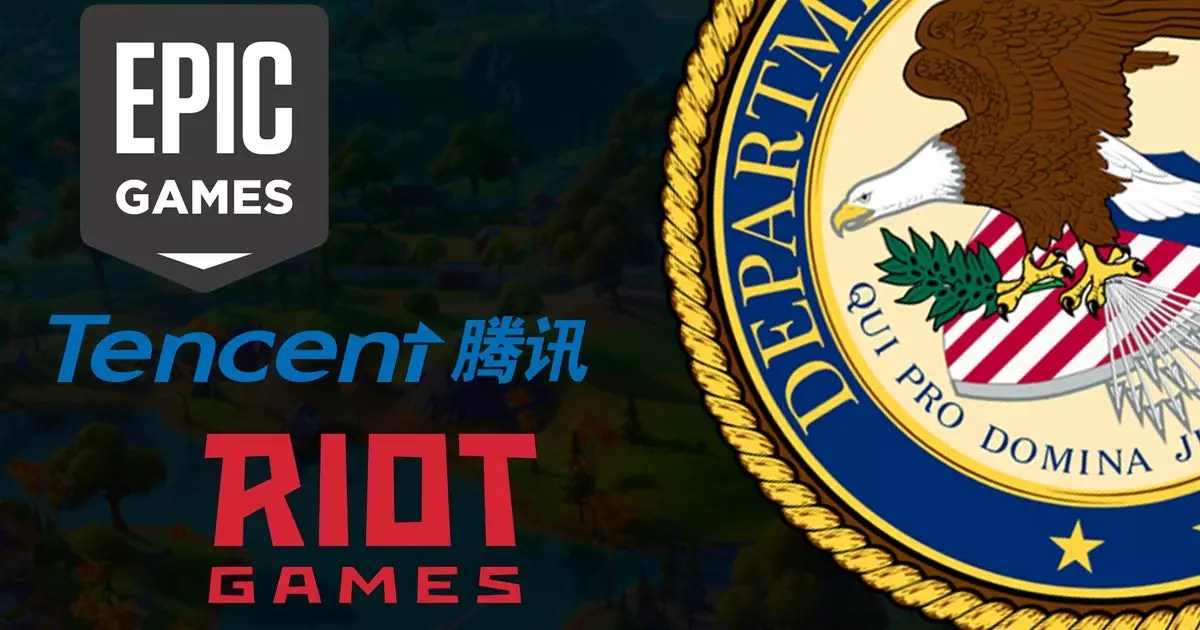In the world of corporate governance, the marriage between business strategy and legal compliance is vital. Recently, Epic Games found itself at the center of an impactful case that has illuminated the often murky waters of boardroom ethics and antitrust laws. The resignation of two board directors, who previously held positions at Tencent, was spurred by an investigation led by the U.S. Department of Justice (DoJ) regarding potential violations of antitrust regulations. This case exemplifies how intertwined the issues of corporate governance and antitrust laws can be, particularly within the competitive landscape of the video game industry.
Epic Games, the renowned developer behind the Unreal Engine and Fortnite, has forged a strong alliance with Tencent, the Chinese tech giant that possesses a significant minority stake in the company. However, this relationship became questionable when the DoJ began examining the implications of Tencent’s influence over Epic. Tencent also owns Riot Games, a competitor in the gaming space, leading to accusations of conflicts of interest and potential monopolistic behavior. The key question raised: can a firm have directors on the board who are affiliated with a competing entity?
The notion itself is reminiscent of classic business ethics dilemmas. Imagine an executive from Coca-Cola holding sway over a board that decides the future of Pepsi. The inherent conflict is clear and underlines the premise of the Clayton Act, which aims to protect fair competition by prohibiting individuals from serving on the boards of rival firms under most circumstances.
In response to the ongoing investigation, Ben Feder and David Wallerstein voluntarily resigned from the Epic board. Feder, formerly the President of International Partnerships at Tencent and CEO of Take-Two Interactive, and Wallerstein, who was a Senior Executive Vice President at Tencent, both had substantial roles that could raise eyebrows regarding their influence at Epic. Their resignations were pivotal not only for Epic’s corporate image but also for Tencent’s reputation, as the company sought to mitigate further scrutiny.
The legal resolution hinted that neither party admitted any wrongdoing. Instead, both companies moved quickly to pivot away from potential legal repercussions, with Tencent agreeing to amend its shareholder arrangement. This adjustment will prevent Tencent from appointing directors to the Epic board in the future, demonstrating an acute awareness of the importance of corporate governance and ethical transparency.
Antitrust laws serve a crucial function in safeguarding market competition from the monopolistic tendencies of large corporations. Such regulations are especially pertinent in the technology sector, where companies not only dominate market shares but also intersect in ownership and governance. Past incidents, such as Valve’s antitrust lawsuit and Microsoft’s acquisition of Activision Blizzard, underscore the critical role these laws play in ensuring companies do not exploit their positions at the expense of competitors and consumers.
The Epic Games case reveals the scrutiny that major gaming entities can expect when their corporate boards may wield outsized influence across rival companies. The intervention by the DoJ is a stark reminder that large companies cannot operate with impunity, and must remain vigilant about maintaining ethical boardroom practices.
The fallout from this episode serves multiple lessons for corporate governance in the digital age. Firstly, the intersection of business relationships and regulatory frameworks demands constant awareness from executives and boards alike. Both Epic Games and Tencent are now put on notice that compliance with antitrust laws is essential not only for their corporate image but also for the sustainability of their business practices.
Secondly, as the landscape of corporate governance continues to evolve, companies must recognize the increasingly aggressive stance regulators like the DoJ are taking. The necessity for clear and transparent governance structures is more critical than ever, particularly in sectors as dynamic and competitive as video gaming. This case underscores a fundamental truth: ethical governance isn’t just a legal obligation; it’s essential for maintaining trust and credibility in a rapidly changing business landscape.


Leave a Reply